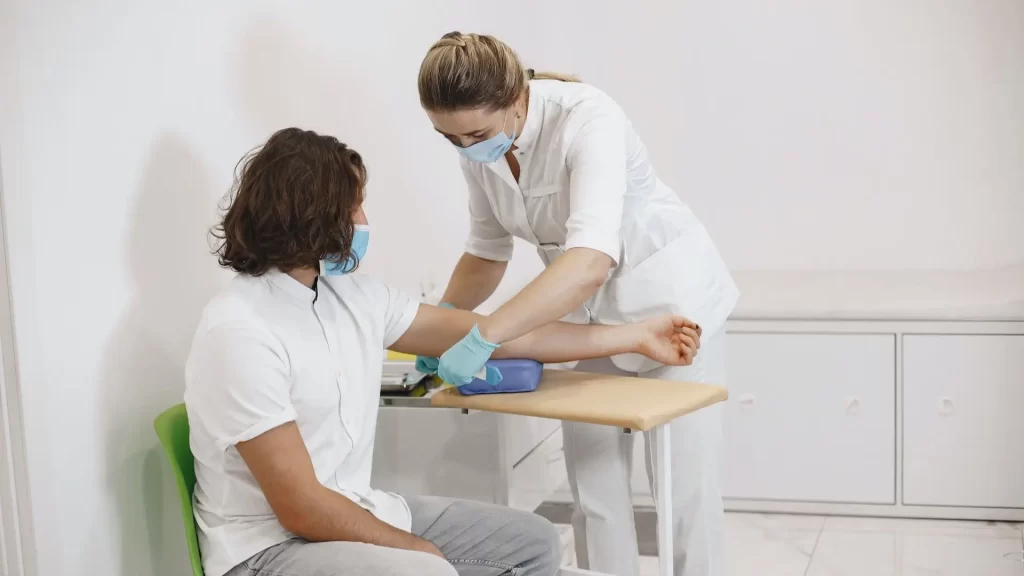The Medical Test Requirement for Canada PR: Your Gateway to Permanent Residency

Are you considering applying for permanent residency in Canada?
If so, one crucial aspect of the application process you must not overlook is the medical examination requirement. To become a permanent resident in Canada, you need to undergo a medical test that assesses your health and admissibility. In this article, we will guide you through the Canadian PR medical test, its importance, and what you can expect during the examination.
These are various advantages to obtaining Canadian citizenship. If you are considering relocating to Canada, this might be an excellent decision to consider.
Understanding the Canadian PR Medical Test
The medical examination is a fundamental part of the Canadian immigration process. It is designed to ensure that new immigrants do not pose a health risk to the Canadian public, are not likely to be a burden on the healthcare system, and do not have any conditions that could impact public safety.
The medical test is conducted by a designated panel of physicians approved by Immigration, Refugees, and Citizenship Canada (IRCC). These physicians are well-versed in the specific requirements for Canadian immigration medical examinations. When you attend your appointment, the panel physician will perform a thorough assessment to determine if you meet the health standards set by the Canadian government.
Who Needs to Undergo the Medical Examination?
Most applicants for permanent residency in Canada are required to complete the medical test. This includes those applying through the Express Entry system, family sponsorship programs, and provincial nominee programs. In some cases, even temporary residents applying for an open work permit may need to undergo the examination.
What to Expect During the Medical Examination?
The Canadian PR medical examination typically includes a series of medical assessments, including:
Physical Examination: The panel physician will conduct a comprehensive physical examination, which may involve checking your vital signs, eyes, ears, nose, and throat, among other things.
Chest X-ray and Tuberculosis Screening: You will be required to have a chest X-ray to screen for tuberculosis. This is a common test as tuberculosis is a contagious disease and is of great concern to Canadian health authorities.
Blood and Urine Tests: You may be asked to provide blood and urine samples for various tests, including screening for sexually transmitted infections, HIV, and other transmissible diseases.
Vaccination Status: Your vaccination history will be reviewed to ensure you are up to date on required vaccinations in Canada.
Medical History Review: The panel physician will review your medical history, including any pre-existing conditions. Be honest and thorough in providing your medical history to ensure accurate assessment.
What Happens Next?
After your medical examination, the panel physician will submit the results directly to IRCC. If you are deemed medically admissible, your application will continue to be processed. In the event that there are concerns about your health that may affect your admissibility, IRCC will notify you and provide an opportunity for you to respond. In some cases, you may be required to provide additional medical tests or specialist assessments.
It’s important to remember that the medical test is not a determiner of your eligibility for permanent residency based on other criteria. If you are found inadmissible on health grounds, you may still be eligible for a temporary resident permit, humanitarian and compassionate consideration, or other avenues to address the health concerns.
Conclusion
The medical test is a crucial step in your journey to becoming a permanent resident in Canada. Ensuring you meet the health standards set by Canadian authorities is essential. When preparing for your medical examination, honesty and thoroughness are key. If you have any pre-existing conditions, ensure you have all necessary documentation and be prepared to answer any questions from the panel physician.
Remember that the medical test is just one piece of the puzzle. While it is important, it is your overall application and eligibility that will ultimately determine whether you are granted permanent residency in this beautiful and diverse country. So, stay informed, prepare well, and embark on your journey to Canada with confidence.
FAQ`s:
You need a medical test to ensure you don’t have any serious health conditions that could affect public health or safety in Canada. It’s a standard requirement for all PR applicants.
The medical test usually includes a physical exam, blood tests, and a chest X-ray. It helps identify any health issues that may need attention.
You should visit an approved panel physician designated by Immigration, Refugees, and Citizenship Canada (IRCC). They will conduct the required tests and submit the results directly to IRCC.
Generally, your medical results are valid for 12 months from the date of your first test. This means you must submit your PR application within that timeframe.
Having a medical condition doesn’t necessarily mean your PR application will be denied. IRCC assesses each case individually. They may ask for more information or medical exams to determine if your condition poses a health risk to Canadians.
Agacs Pvt Ltd is the leading immigration and visa consultancy in Hyderabad, India, offering expert assistance for US H1B Visa, US EB5 Visa, Canada PR and Canada Work permit Visa application processes. Our professional advisors provide trusted guidance to ensure a smooth and successful visa application experience.
For more details on h1b sponsorship contact us at
info@agacs.in & call on +91 9505000900. Website: www.agacs.in


